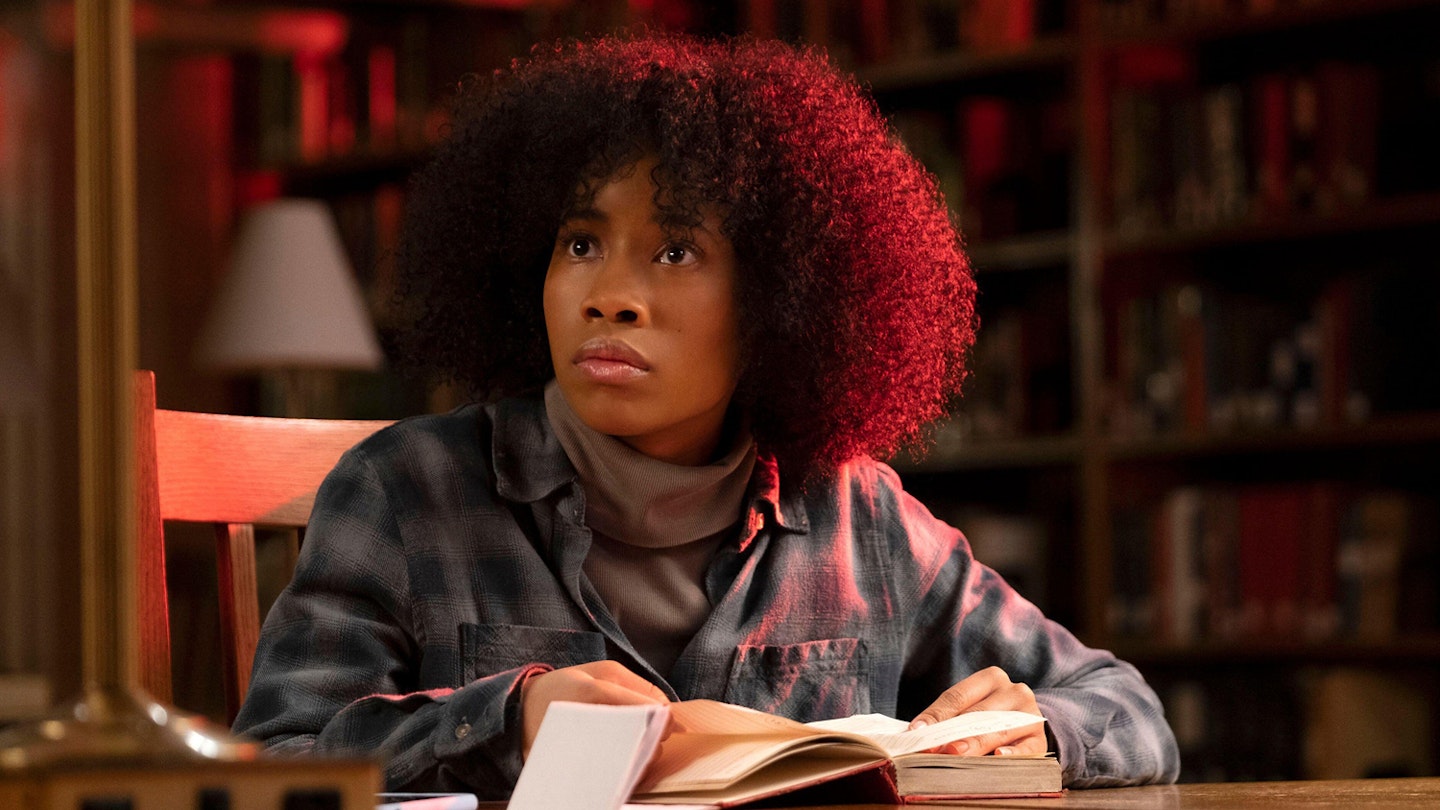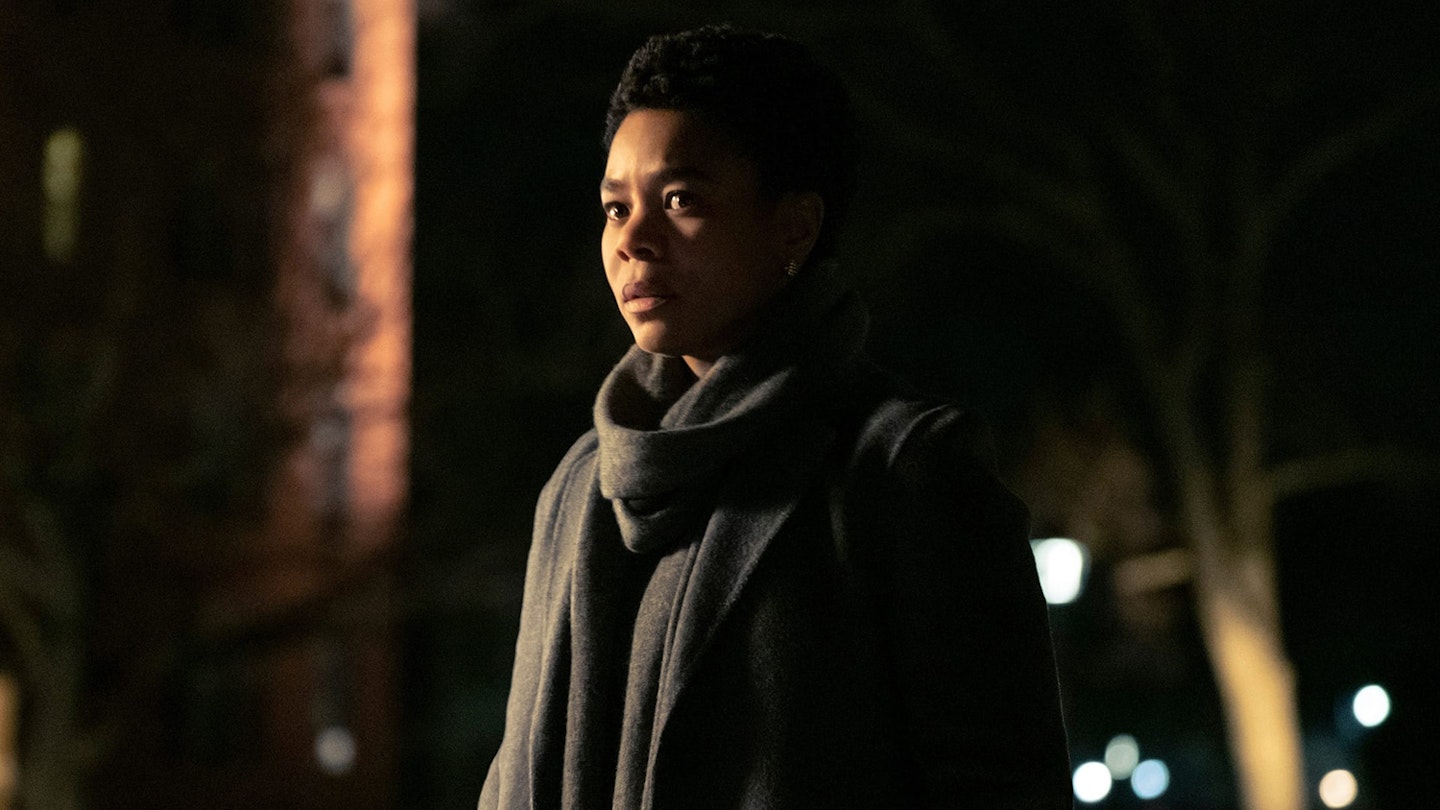“It’s not ghosts. And it’s not supernatural. It’s America. And it’s everywhere.” If there’s a line of dialogue that encapsulates the horror at the heart of Mariama Diallo’s highly effective feature debut, this is it. Not only does it speak directly to the themes of Master, exploring three Black women’s interweaved experiences at a prestigious American college, but it also captures the various horror subgenres contained within: ghost story spooks, moments of slasher-like tension, and social thriller commentary, all swirled together in a hauntingly ambiguous brew.
The post-Get Out boom of horror movies rooted in a variety of Black experiences has had its highs (Remi Weekes’ astonishing His House), lows (the misfiring Antebellum), and everything in between (Nia DaCosta’s flawed but fascinating Candyman). In its opening act, Diallo’s film – which she also wrote, drawing from her own experiences at Yale – occasionally wobbles, applying a thin horror veneer to observations of racialised discomfort. But it becomes knottier and more multilayered as it goes on, combining compelling character stories and smartly-handled genre elements in a way that gets under the skin come the closing credits.

When new student Jasmine (Zoe Renee, excellent) turns up at Ancaster College, joining a largely-white cohort who all seem to know each other already, the microaggressions begin immediately: she’s thrown a kitchen roll to clean up her roommate’s spilled booze; her stories are interrupted mid-flow by fellow partygoers; her bag is searched at the library. On top of this, her dorm room – shared with the obnoxious Amelia (Talia Ryder) – is not only rumoured to have been cursed by a woman hung in a witch trial, but is also the room in which the college's first Black student died decades previously.
Jasmine’s story intersects with that of two other Black women at Ancaster. Chiefly, there’s Regina Hall’s Gail, the first Black person to become Master of Belleville Hall, experiencing her own discomfort as she settles into her new campus residence. Servant bells still adorn the walls of the creaky house, portraits of old white Masters abound, and a maggot infestation reeks of pestilence and decay. Meanwhile, Gail’s friend and fellow staff member Liv Beckman (Amber Gray) is seeking tenure, while also serving as Jasmine’s literature teacher.
Mariama Diallo conjures an insufferable, suffocating atmosphere of stuffy academia as scary as any ghostly hooded figure.
These threads complement each other impressively in an emotionally knotty triangle: Jasmine’s poor grades from Liv feel targeted, causing her to file a formal complaint; Gail wants to support Jasmine, but the complaint could result in Liv being denied tenure; Gail and Liv both have shared struggles as Black women in a predominantly white space, but Gail is torn between defending her friend and appeasing the other lecturers who deem Liv unqualified for a tenured position. Layered on top of all that are some well-crafted horror beats – the maggot-centric imagery feels clichéd, but elsewhere there are serious spooks, like a ghoulish hand creeping out from under a bedsheet to lightly stroke Jasmine’s arm, or a contorted figure writhing in a hallway.
Master’s initially simplistic dynamics – the white characters, particularly Jasmine’s fellow students, feel caricatured in their ignorance – are soon complicated in engaging and unexpected ways, enrichened by surprising narrative turns. As the relationships become more complex, so too does the horror; the line between nightmarish visions and real-life nightmares becoming blurred until they’re indistinguishable. Diallo conjures an insufferable, suffocating atmosphere of stuffy academia as scary as any ghostly hooded figure, steeped in Rosemary’s Baby-inspired POV shots.
Following a final act which wrestles with the consequences of a wrenching rug-pull development, there’s plenty to ponder upon Master’s quiet, contemplative conclusion – from the multiple meanings of its title, to its resonances after the back-to-back presidencies of Obama and Trump. In the words of Gail: It’s not ghosts. It’s America. And, really, that’s much scarier.
